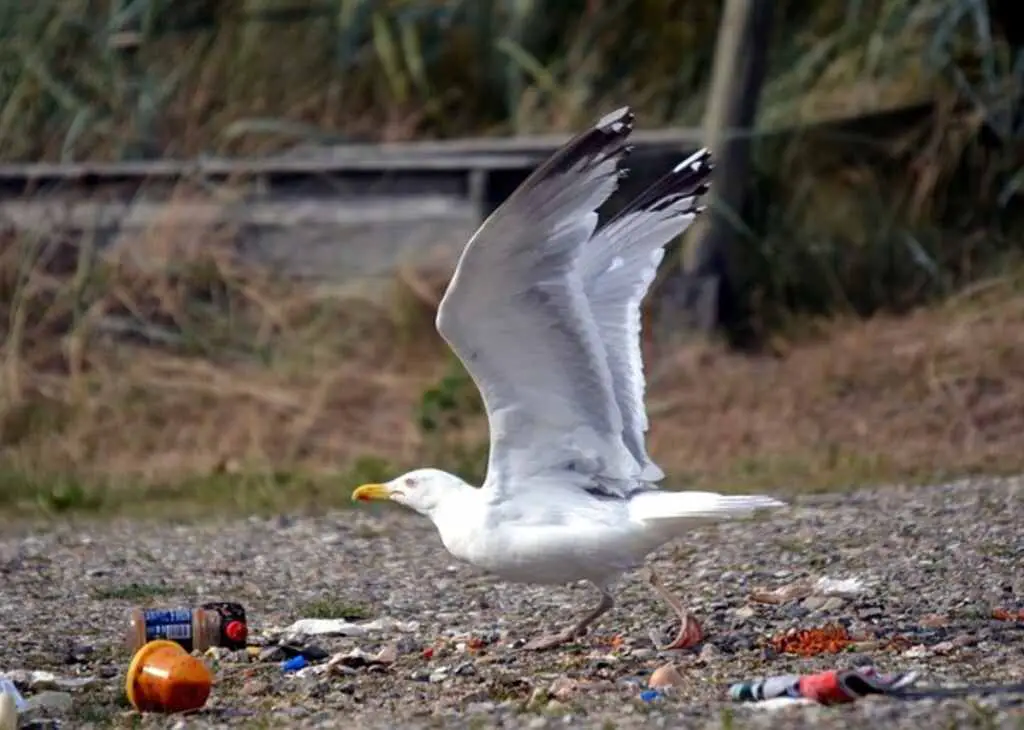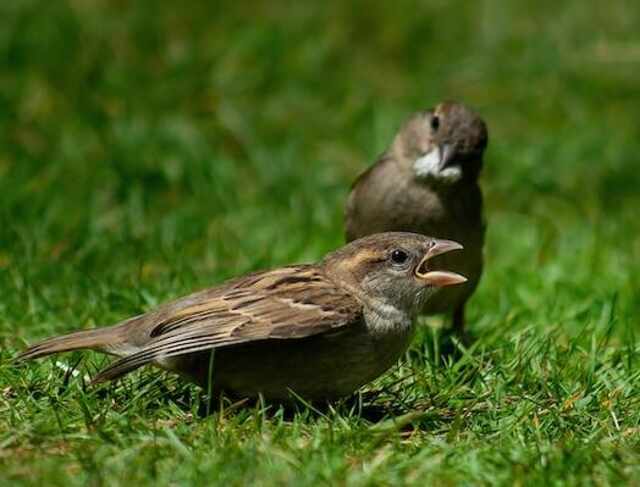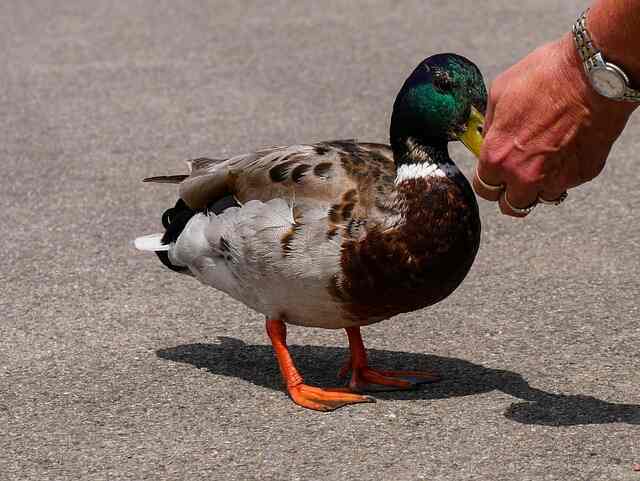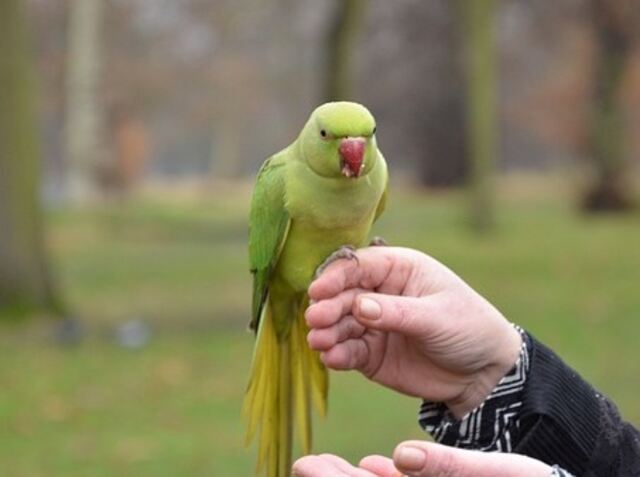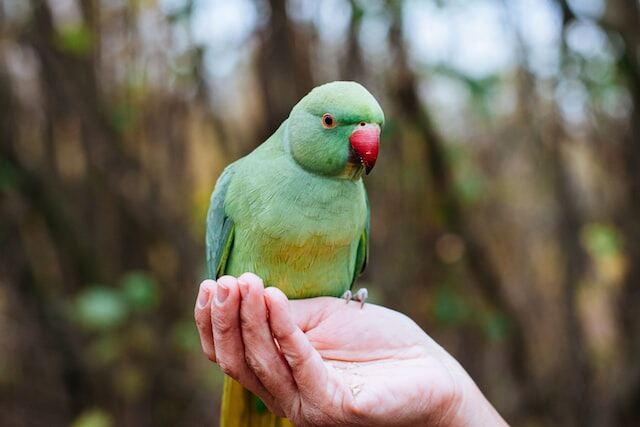If you’re wondering, can birds eat chocolate? the answer is no. Chocolate is toxic to birds and can cause serious health issues, including heart problems and even death. It contains theobromine and caffeine, both of which are harmful to birds, even in small amounts. In this article, we’ll explain why chocolate is dangerous for birds and what foods are safe alternatives for birds.
Table of Contents
- 1 Can birds eat chocolate?
- 2 Why is chocolate toxic to birds?
- 3 What happens when a bird eats chocolate?
- 4 How much chocolate will kill a bird?
- 5 What if chocolate is a minor ingredient?
- 6 Are all varieties of chocolate toxic to birds?
- 7 Can birds eat white chocolate?
- 8 Can birds eat chocolate chips?
- 9 Can birds eat chocolate cake?
- 10 Why can’t birds eat chocolate cake?
- 11 Can birds eat chocolate chip cookies?
- 12 Can birds eat chocolate biscuits?
- 13 Can birds eat chocolate cereal?
- 14 Can birds eat chocolate cookies?
- 15 Can birds eat chocolate brownies?
- 16 Can birds eat chocolate muffins?
- 17 Can birds eat chocolate ice cream?
- 18 Can birds eat chocolate spread?
- 19 Can wild birds eat chocolate?
- 20 Can wild birds eat chocolate cake?
- 21 Can wild birds eat chocolate chip cookies?
- 22 Can wild birds eat chocolate biscuits?
- 23 Can garden birds eat chocolate?
- 24 Can squirrels and birds eat chocolate?
- 25 My bird ate a little bit of chocolate?
- 26 What happens if my bird eats a little bit of chocolate?
- 27 What happens if a parakeet eats chocolate?
- 28 What can happen if my parrot eats chocolate?
- 29 What are the symptoms of a parrot that consumed chocolate?
- 30 What to do if your pet parrot eats chocolate?
- 31 Why is chocolate toxic to parrots?
- 32 What can you give your parrot as a snack instead of chocolate?
- 33 What can you do to prevent chocolate toxicity?
- 34 What are safe treats you can give your bird?
- 35 Author
Can birds eat chocolate?
It’s a question that has been asked for years: can birds eat chocolate? The short answer is, unfortunately, no. Chocolate contains a substance called theobromine, which is poisonous to birds and other animals. Eating even a small amount of chocolate can cause vomiting, diarrhea, heart problems, seizures, and eventually death in birds.
As such, it’s important to keep any sweet treats well away from our feathered friends. If you have bird feeders or food dishes outside your home, store them inside when not in use to avoid tempting avian visitors with sweets.
Why is chocolate toxic to birds?
Chocolate is a favorite treat for us, but it can be toxic to birds. Chocolate contains caffeine and theobromine, both of which are poisonous to birds. The dark variety of chocolate has higher concentrations of these compounds, making it even more dangerous for avian consumption.
In addition, sugary sweets such as candy bars contain sugar and fat that can cause obesity in birds and other health issues. Ultimately, chocolate should never be given to any bird species – no matter how much they beg for it!
What happens when a bird eats chocolate?
When a bird consumes chocolate, it can be fatal. Chocolate is toxic to birds due to its high levels of theobromine, a chemical compound that can affect the nervous system and heart. The symptoms caused by ingesting chocolate may include vomiting, diarrhea, depression, tremors, seizures, and even death.
Additionally, chocolate contains large amounts of sugar which can cause pancreatic issues in birds such as fat deposits clogging their organs and malfunctioning pancreas. Furthermore, it can lead to liver enlargement and failure, since these organs are largely responsible for metabolizing toxins like theobromine.
As such, if your bird eats any type of chocolate—no matter the amount—it’s important that you seek medical advice from an avian veterinarian immediately.
How much chocolate will kill a bird?
Chocolate is one of the most popular treats people to enjoy, however it can be quite dangerous for birds. Chocolate contains a compound called theobromine, which can poison many animals if consumed in large quantities. Unfortunately for our feathered friends, it does not take much chocolate to make them ill, let alone kill them – less than 0.07 oz (2 gm) of chocolate can be fatal for a bird!
This is because birds are far more sensitive to the toxic effects of theobromine than other animals and will suffer from poisoning even when ingesting small amounts. Symptoms of chocolate poisoning in birds include nausea, vomiting, muscle tremors, irregular heartbeat and eventually death due to heart attacks or respiratory failure.
If you suspect your pet bird has eaten some chocolate, then contact a veterinarian immediately, as treatment needs to begin right away to save its life.
What if chocolate is a minor ingredient?
It is widely known that chocolate can be toxic to birds. But what if it is only a minor ingredient in a treat or food? The answer is yes, even small amounts of cocoa can still be harmful to birds. This is because theobromine, the substance found in chocolate, cannot be metabolized by their bodies, resulting in toxicity and potentially death.
The darker the chocolate and the higher the concentration of cocoa, the more dangerous it is for birds. Therefore, even if it’s just a small amount of chocolate in something like a cake or cookie, there could still be enough cocoa present to cause harm to our feathered friends. It’s best to keep all forms of chocolate away from pet birds as much as possible.
Are all varieties of chocolate toxic to birds?
Chocolate is a delicious treat for us, but it can be quite dangerous for birds. Unfortunately, all types of chocolate are toxic to birds, and some types can be worse than others.
Dark chocolate and baking chocolate contain the highest levels of theobromine—the chemical in cocoa that is poisonous to birds—making them more dangerous than other varieties like milk or white chocolate.
Ingesting even small amounts of chocolate can cause serious health problems in birds, including seizures, tremors, irregular heart rate, and death. Therefore, it’s important to keep all types of chocolate away from your feathered friends!
Can birds eat white chocolate?
White chocolate has become a popular treat for humans, but what about birds? Can they safely eat white chocolate too? The answer is no. White chocolate contains cocoa butter and sugar, ingredients which can be toxic to our feathered friends and cause digestive problems.
Furthermore, it also tends to contain other unhealthy additives such as artificial flavors and preservatives that can further harm a bird’s health. It is best to avoid feeding them any type of chocolate altogether.
Instead, offer your bird treats that are specifically designed for its dietary needs, such as fruits or vegetables. While white chocolate may not be an option for your feathery friend, there are still plenty of yummy snacks you can give them!
Can birds eat chocolate chips?
Chocolate chips are made up of cocoa solids and cocoa butter, along with other ingredients such as sugar and flavorings. Since birds lack the enzymes that help humans break down and process these components, eating too many chocolate chips could lead to digestive upset or even toxicity from the caffeine and theobromine present in cocoa. Additionally, the high concentrations of fat and sugar can contribute to obesity and diabetes if fed in excess over time.
Can birds eat chocolate cake?
Birds can’t eat chocolate cake, because chocolate contains theobromine, which is toxic to birds. When consumed in high doses, it can cause life-threatening reactions such as seizures, tremors, and even death. It is also very difficult for birds to digest because their digestive system is different from ours.
Furthermore, many cakes contain ingredients like sugar and butter that are bad for a bird’s health, since they provide no nutritional value. Therefore, it is best to keep chocolate cake away from birds and provide them with food specifically designed for their species.
Why can’t birds eat chocolate cake?
Chocolate can be toxic for birds and has been known to cause serious illness or death in extreme cases. Theobromine, an alkaloid found in chocolate, can have a very negative effect on their systems due to the fact that birds lack certain enzymes needed to properly metabolize it.
In small doses, it can act as a mild stimulant or diuretic and cause increased heart rate, vomiting, diarrhea and lethargy. In larger doses, it can lead to seizures and even heart failure.
Even though the level of toxicity depends on many factors such as species type and individual bird’s size, general consensus seems to agree that chocolate should be avoided at all costs when feeding our feathered friends.
In fact, any food containing cocoa solids should also be considered off limits, as they too contain large amounts of Theobromine.
Birds may be tempted to try a delicious chocolate chip cookie, but people should not give birds such treats. Chocolate chips can actually be very dangerous for birds if consumed in considerable amounts.
Chocolate is poisonous to birds and contains theobromine, which blocks their metabolism and can cause heart damage or even death, depending on the amount ingested.
Even though some people believe that small quantities of dark chocolate are safe for wild birds, it is still best to avoid feeding them any kind of chocolate altogether.
The sugar content of cookies also poses a risk, since it causes spikes in blood sugar levels that can lead to health problems over time if consumed frequently.
Therefore, it’s important to not feed your feathered friends any kind of cookie with chocolate chips as an ingredient.
Can birds eat chocolate biscuits?
Birds cannot eat chocolate biscuits due to their sensitive digestive systems. Chocolate contains high amounts of caffeine and theobromine, both compounds that are toxic for birds.
Additionally, chocolate is very rich in fat and sugar, which can cause obesity and other health problems for birds if ingested in large quantities.
Finally, birds lack an enzyme needed to effectively metabolize chocolate, meaning the chemical components would remain in their bodies longer than they should.
Even eating small amounts of chocolate products can be dangerous for birds, so it is best not to feed them any type of chocolate-based food item such as cookies or candy.
Can birds eat chocolate cereal?
Chocolate cereal and other processed foods are not a good option for birds. These items may contain high levels of sugar, artificial colors or flavors, preservatives, salt, or other additives that can be toxic to birds. Additionally, the chocolate flavorings used in chocolate cereals can be hazardous to a bird’s health; as they contain ingredients like caffeine and theobromine, which can cause serious illnesses if ingested.
So when considering what to feed your pet bird, it is best to stick to fresh fruits, vegetables, grains and seeds that have been specifically formulated for their species. This will ensure that the bird has access to all the essential nutrients needed for proper development and health.
Birds are not able to digest chocolate, so feeding them chocolate cookies is not a good idea. Chocolate contains theobromine, a stimulant that can be toxic or even fatal if consumed by birds in large amounts. The sugar and other unhealthy additives contained in many store-bought cookies can also harm birds’ health.
Furthermore, some cookie ingredients may cause an allergic reaction in the bird’s digestive system such as vomiting, diarrhea or even death. As a result, chocolate cookies should never be offered to birds.
To ensure their safety and health, people should provide birds with food specifically designed for their diet, such as seeds and vegetables instead of human snacks like chocolate cookies.
Can birds eat chocolate brownies?
No, birds should not eat chocolate brownies. Chocolate is toxic to birds and can potentially be fatal if eaten in large amounts or even just a tiny amount.
All forms of chocolate contain theobromine, which is highly poisonous for birds. Even small amounts can cause vomiting, seizures, heart failure, or death in birds due to their sensitive digestive systems.
To avoid poisoning your pet bird, it’s best to avoid giving them any type of sweet food containing cocoa powder or chocolate chips, like brownies and cookies.
Can birds eat chocolate muffins?
Most people assume that birds can eat anything, but unfortunately this isn’t true. Chocolate muffins are not suitable for birds to consume. Chocolate is toxic to birds, so any food containing chocolate is off limits. The sugar and fat content of a chocolate muffin could also be unhealthy for birds.
While some foods made with cocoa powder might be safe in small amounts, it’s best to avoid feeding chocolate muffins or other treats with chocolate as the main ingredient. Instead, offer your feathered friends a variety of healthy fruits, vegetables, seeds and nuts.
Can birds eat chocolate ice cream?
Birds should not eat chocolate ice cream as it can be quite dangerous and toxic to them. Chocolate contains a compound called theobromine, which is very similar to caffeine, but much more potent.
This chemical can cause serious health problems in birds, such as an irregular heartbeat, tremors and even death in extreme cases.
So it’s best for them to avoid anything containing chocolate or cocoa at all costs. If a bird does ingest some form of chocolate, then they will need urgent veterinary treatment to try and save their lives.
Can birds eat chocolate spread?
People often forget that birds have different dietary needs than us. Chocolate spread is not something that should be fed to birds due to the large amounts of sugar and other ingredients it contains. The cocoa found in chocolate spreads can be toxic to some birds, as well as their eggs.
Even if a bird were to eat a tiny amount of chocolate spread, it could cause nausea and vomiting, which may even lead to death in severe cases. Furthermore, foods high in fat or sugar can encourage obnoxious behavior among pet birds, as they require specific diets for optimal health.
To ensure your pet bird stays healthy and happy, save the chocolate spread for yourself and stick with nutrient-rich treats like fruits and vegetables instead!
Can wild birds eat chocolate?
No, wild birds should not be given chocolate. Chocolate contains theobromine and caffeine, both of which are toxic to birds if ingested in large enough quantities. In addition, chocolate is high in sugar and fat, neither of which provide any nutritional value to a bird’s diet.
Too much sugar can result in obesity and other health risks. Furthermore, dark chocolate has even higher levels of these toxins, making it very dangerous for wild birds. If you want to attract birds to your yard, opt for birdseed or nuts instead.
Can wild birds eat chocolate cake?
Wild birds should not eat chocolate cake. Chocolate contains theobromine and caffeine, both of which are toxic to wild birds. Eating even a small amount can cause heart arrhythmias, tremors, seizures, and in some case’s death.
Additionally, chocolate cake is high in calories with little nutritional value and has the potential to cause an imbalance in the bird’s diet.
Even if there is no risk of toxicity from eating a very small amount of chocolate cake, it’s best to avoid feeding it to wild birds as it could be harmful or life-threatening for them.
Chocolate chip cookies may seem like a tasty treat for wild birds, but the reality is that they should not be fed to them. Chocolate can be harmful to a number of animals, including birds.
It contains a compound called theobromine, which can cause heart palpitations and tremors in small birds. Additionally, large amounts of sugar found in cookies can lead to health problems such as obesity and diabetes.
Even if a bird doesn’t have a reaction to the candy itself, chocolate chips could potentially contain other ingredients that are unhealthy for birds, such as food coloring or preservatives. To ensure their safety and well-being, it’s best not to feed wild birds any type of chocolate chip cookie.
Can wild birds eat chocolate biscuits?
Wild birds are often attracted to food sources we might not expect. However, it is generally not a good idea to feed wild birds chocolate biscuits or anything else containing chocolate. Chocolate contains theobromine, which can be toxic to many animals, including wild birds.
There are also ingredients in most chocolate biscuits that can cause stomach upset and other problems in wild birds. It is best if people stick with bird seed and other bird-friendly treats when feeding wild birds.
Can garden birds eat chocolate?
Garden birds may be tempted to eat chocolate, however, it is not suitable for them to consume. Chocolate is high in sugar and fat content, which can cause health problems if consumed regularly, such as digestive issues and obesity.
Additionally, theobromine found in chocolate is toxic to birds and other animals, causing vomiting, seizures and even death. If you spot a bird eating any type of chocolate or sugary food in your garden, it’s best to take it away from them.
Instead of providing sweet treats like chocolate to birds, opt for birdseed mixes that are specifically designed for wild birds, so they can feed safely and stay healthy.
Can squirrels and birds eat chocolate?
Chocolate is a sweet treat that many humans enjoy, but it can be dangerous for some animals. Squirrels and birds in particular should not eat chocolate, as it contains theobromine and caffeine, two chemical compounds that are toxic to these animals.
In addition, the sugar content in chocolate can cause health problems, such as diabetes or obesity. If a squirrel or bird consumes too much of these sweet treats, it could lead to serious health issues or even death. It’s always best to keep chocolate out of reach of wildlife and pets to ensure their safety.
My bird ate a little bit of chocolate?
If your pet bird ate a small amount of chocolate, you should monitor them for any signs of distress. Ingesting chocolate can be dangerous for birds due to their inability to metabolize theobromine, an ingredient in chocolate that is toxic to birds.
Symptoms could include vomiting, diarrhea, seizures, and even death in some cases. If you notice any of these symptoms, immediately take your bird to the vet. Otherwise, keep them hydrated and feed them fresh fruits and vegetables, as they may need extra nutrients after consuming chocolate.
Regular exercise will also help normalize their metabolism more quickly. It’s best to avoid feeding your bird chocolate altogether in order to prevent incidents like this from happening again in the future.
What happens if my bird eats a little bit of chocolate?
Chocolate is a dangerous food for birds and should not be given to them. Even a small amount of chocolate can cause a bird to become ill or even die. Theobromine, an ingredient found in all types of chocolate, is highly toxic for birds and can cause vomiting, diarrhea, seizures and even heart failure if ingested.
If your bird has eaten any amount of chocolate, it’s important to take it to a veterinarian immediately. Treatment varies depending on the type of chocolate consumed and how much was ingested.
It may include medications such as activated charcoal or intravenous fluids to treat dehydration due to vomiting or diarrhea. Early detection and treatment are essential in order to avoid serious long-term health problems or even death in some cases.
What happens if a parakeet eats chocolate?
Eating chocolate can be quite dangerous for parakeets as it contains theobromine, a compound that is toxic for them. It can cause symptoms such as an irregular heartbeat, seizures, and even death. If your parakeet has eaten chocolate, you should take immediate action by visiting a veterinary clinic.
The toxicity of theobromine depends on the amount ingested in relation to the size of the bird, so if caught soon enough, your parakeet may have a chance of surviving with proper treatment.
In some cases, this might mean giving supportive care or inducing vomiting, depending on how much chocolate was consumed. Taking prompt action along with providing supportive care may help save your bird’s life.
What can happen if my parrot eats chocolate?
Chocolate can be very dangerous for parrots, as it contains theobromine, a highly toxic substance. If your parrot eats chocolate, they could suffer from vomiting, diarrhea and dehydration. More severe symptoms could include an increased heart rate and seizures.
These effects are caused by theobromine toxicity, which can be fatal if not treated quickly. The symptoms usually start within 1–2 hours after ingestion and can last between 48–72 hours, depending on how much chocolate was consumed.
To prevent this from happening in the first place, you should keep all forms of chocolate away from your parrot and make sure that any food provided is safe for them to eat. If you suspect that your parrot has eaten chocolate, take them to a veterinarian immediately for treatment and monitoring.
What are the symptoms of a parrot that consumed chocolate?
The symptoms of a parrot that consumed chocolate can be very serious and should not be taken lightly. Common signs of chocolate poisoning include vomiting, diarrhea, lethargy, difficulty breathing, decreased appetite, seizures and possibly death.
If your bird has access to chocolate or any other type of toxic substance, it is important to watch for these signs and seek help from an avian veterinarian immediately. In some cases the vet may recommend administering activated charcoal which can absorb toxins in the digestive system.
Additionally, supportive care such as fluids and vitamins may also be recommended. It is essential that all ingested substances are completely removed from your bird’s environment in order to prevent future incidents.
What to do if your pet parrot eats chocolate?
If your pet parrot has eaten chocolate, it is essential to act quickly in order to prevent any adverse health effects from occurring. Immediately remove all sources of chocolate from the bird’s environment and keep a close eye on its behavior and appearance.
If you notice signs of distress – such as lethargy, vomiting or diarrhea – bring your parrot to an avian veterinarian right away. It is important to note that chocolate can be toxic for some birds, so exposure should be avoided at all costs.
If possible, try to determine how much chocolate was consumed so the vet can provide appropriate treatment. Lastly, once your parrot has been examined, ensure that it has access to fresh foods and water and limit its activity until it is feeling better.
Why is chocolate toxic to parrots?
Chocolate is a potentially dangerous substance to parrots due to its high concentration of theobromine. This compound, found in cocoa beans and other chocolate products, can cause serious health issues in birds when ingested.
In parrots, even small amounts are poisonous and can lead to fatal cardiac arrhythmias or seizures. It is important to keep all chocolate out of reach of parrots, as they may be tempted by the sweet smell and taste it carries.
Chocolate should also never be used as a reward for behavior training, as even a tiny piece could result in severe sickness or death for these creatures.
What can you give your parrot as a snack instead of chocolate?
When it comes to choosing snacks for your parrot, it’s important to always opt for something healthy. Chocolate is definitely not the best choice as it contains caffeine and other ingredients that can be toxic to birds. Instead, you can offer a variety of fruits and vegetables such as apples, pears, bananas and carrots.
You can also give them some nuts like almonds or walnuts if they’re large enough so that they don’t pose a choking hazard. Some bird-safe seeds are also an excellent choice. Furthermore, you can try making homemade treats with avocado, cornmeal, oatmeal and other nutritious ingredients.
All in all, make sure the food selection is based on your pet’s dietary needs and preferences for a healthier and happier parrot!
What can you do to prevent chocolate toxicity?
Birds are particularly susceptible to chocolate toxicity due to their small size, so it is important to take extra precaution when handling chocolate around them. To prevent chocolate toxicity in birds, you should avoid giving them any type of chocolate; even small amounts can be very dangerous.
Additionally, always store your chocolate away in an area that’s inaccessible to birds, and make sure they cannot reach any leftovers on the counter or table. It is also a good idea to keep cocoa-based products such as baking powder out of their environment entirely.
Lastly, if you suspect that your bird has ingested even a small amount of chocolate, seek immediate help from a veterinarian.
What are safe treats you can give your bird?
Birds love treats, but it’s important to provide them with healthy snacks. Great options include fresh fruits and vegetables such as apples, carrots, broccoli and spinach.
You can also give your bird whole grains like millet or cooked brown rice, cooked pasta or oatmeal, cooked beans and peas, a little bit of nuts or seeds (make sure they’re unsalted) as well as egg-based treats.
Avoid unhealthy foods like sugary cereals, processed meats or anything fried. It’s also important to avoid onions, garlic and certain spices which can be toxic to birds.
Make sure that whatever you give your bird is free from mold and pesticides before serving it. With these guidelines in mind, you’ll be able to make safe treat choices for your feathered friend!
Related Post: Can Birds Eat Peanut Butter? (What You Need To Know!)

